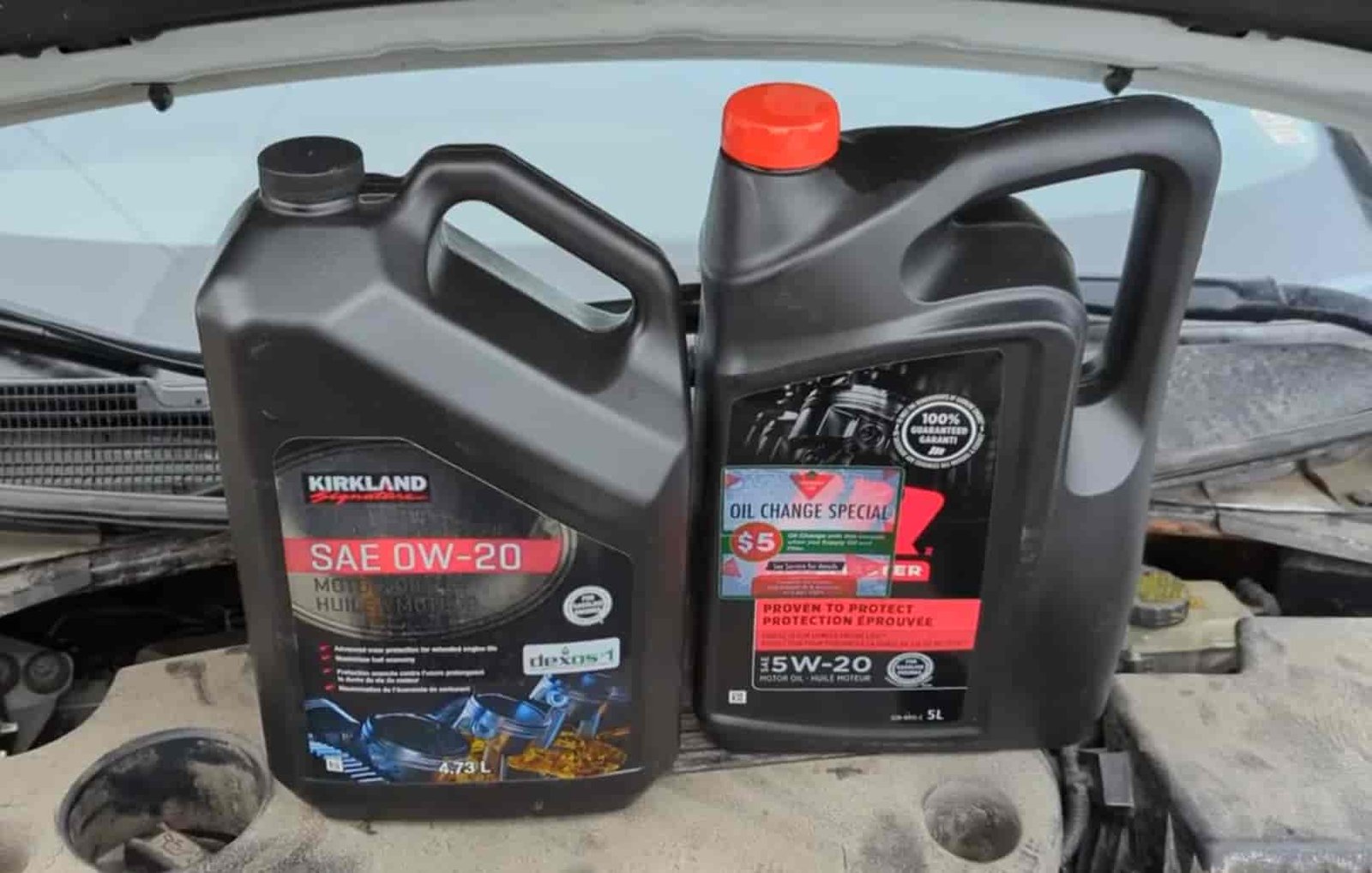Choosing the right oil for your Nissan Altima is one of the most important steps to keep your engine running smoothly and efficiently. Many drivers overlook this simple detail and end up dealing with rough idling, poor fuel economy, or even costly repairs. Asking “What type of oil does a Nissan Altima take?” is not just a basic maintenance question, it’s the key to extending the life of your car and ensuring peak performance in every season.
This complete oil guide covers every Altima model year from 2010 to 2025, including engine types, recommended viscosities, oil capacities, and change intervals. You will also find expert tips on choosing between conventional and full synthetic oils, how often to replace your oil filter, and which brands provide the best protection for your Altima’s engine. Whether you drive an older 2.5L sedan or a new turbocharged 2.0, this article will help you make the best oil choice to protect your investment and keep your Nissan Altima performing at its best.
Understanding Nissan Altima Engines and Oil Requirements
Before choosing the right oil, it is essential to understand how the Nissan Altima’s engines are designed and why each version requires a specific oil type. Over the years, Nissan has offered several engine options, including the 2.5L four-cylinder, the 3.5L V6, and the newer 2.0L turbocharged engine. Each engine has different performance characteristics, heat levels, and lubrication needs, which is why the recommended oil viscosity can vary between models.
The 2.5L engine is the most common in Altima models and performs best with 0W-20 full synthetic oil. This oil provides quick flow during cold starts and stable protection at high temperatures, helping to maintain fuel efficiency and reduce engine wear. The 3.5L V6 engine, on the other hand, benefits from slightly thicker oil like 5W-30, offering stronger protection under heavy loads or long highway drives. For the newer 2.0L turbo engines, Nissan recommends 0W-20 synthetic oil due to its ability to handle high pressure and heat without breaking down.
Understanding these differences helps you match the oil viscosity to your specific engine. Choosing the correct oil is not only about following the manufacturer’s recommendation but also about improving long-term performance and preventing costly mechanical issues.
Nissan Altima Oil Type by Model Year (2010–2025)
Nissan has updated the Altima’s engine technology many times over the past decade, and each generation requires slightly different oil specifications. Using the correct oil for your model year ensures proper lubrication, temperature control, and engine protection. Below is a detailed guide that shows the recommended oil types, capacities, and filters for each Altima model year from 2010 to 2025.
| Model Year | Engine Type | Recommended Oil | Capacity | Recommended Filter |
|---|---|---|---|---|
| 2010–2012 | 2.5L / 3.5L | 5W-30 (Synthetic Blend or Full Synthetic) | 4.8 qt / 5.1 qt | Nissan OEM 15208-65F0E |
| 2013–2018 | 2.5L / 3.5L | 0W-20 (Full Synthetic) | 4.9 qt / 5.1 qt | Nissan OEM 15208-9E01A |
| 2019–2025 | 2.5L / 2.0 Turbo | 0W-20 (Full Synthetic) | 4.8 qt / 5.0 qt | Nissan OEM 15208-9E01A |
The shift from 5W-30 to 0W-20 oil in newer Altima models reflects Nissan’s focus on fuel efficiency and cleaner emissions. The thinner 0W-20 oil flows faster during cold starts, reducing friction and improving overall performance. Drivers of older Altimas may still use 5W-30 synthetic blends, but upgrading to a full synthetic formula offers better engine cleanliness and extended protection.
It is also important to use a high-quality oil filter that matches your model year. A genuine Nissan or equivalent premium filter helps trap contaminants and supports consistent oil pressure. Always double-check your owner’s manual for confirmation before purchasing oil or filters, as small differences in trim or region may affect specifications.
Best Oils for Nissan Altima (Top Recommended Brands 2025)
Choosing the best oil brand for your Nissan Altima can make a noticeable difference in how smoothly your engine runs and how long it lasts. While Nissan provides official viscosity recommendations, the quality of oil varies between brands. The options below are among the most trusted synthetic oils for Altima models and are widely available in 2025.
Mobil 1 Advanced Full Synthetic 0W-20 is one of the most popular choices for newer Altima engines. It provides excellent thermal stability, helps clean internal components, and protects against wear during both short city trips and long highway drives.
Castrol EDGE Advanced Full Synthetic 0W-20 is another top performer. It uses titanium-based additives to reduce metal friction, which enhances engine response and longevity. Many Altima owners prefer Castrol EDGE for its consistent performance in both hot and cold weather.
Valvoline Extended Protection 5W-30 is ideal for older Altima models that require a thicker oil. It offers superior oxidation resistance and keeps the engine cleaner for longer intervals.
Pennzoil Platinum Full Synthetic 0W-20 is made from natural gas instead of crude oil, providing cleaner burn and improved protection against deposits. It is an eco-friendly option that still meets all Nissan specifications.
When choosing oil, always look for bottles labeled with API SP or ILSAC GF-6 certification. These standards guarantee modern protection against low-speed pre-ignition and help maintain engine efficiency. For the best results, pair your chosen oil with a genuine Nissan oil filter or an equivalent high-quality brand.
How Often Should You Change Oil in a Nissan Altima?
Knowing when to change your oil is just as important as choosing the right type. Regular oil changes keep the engine clean, improve fuel economy, and prevent premature wear. For most Nissan Altima models using full synthetic oil, the ideal change interval is every 7,500 to 10,000 miles, depending on your driving habits and conditions. Drivers who make frequent short trips or operate in dusty or extremely hot environments may need to change oil more often, around every 5,000 miles.
If you own an older Altima that uses a synthetic blend or conventional oil, it is safer to replace it every 3,000 to 5,000 miles. Following this schedule helps maintain oil viscosity and ensures your engine stays properly lubricated at all times.
Watch for warning signs that indicate it is time for an oil change. These include a burning smell from the engine bay, darker or gritty oil on the dipstick, reduced acceleration, or the oil pressure light turning on. Neglecting these signs can lead to increased friction and possible engine damage.
After each oil change, remember to replace the oil filter and reset the maintenance reminder on your dashboard. These small steps keep your Altima running smoothly and extend the life of your engine for years to come.
Common Mistakes When Choosing Oil for Altima
Many Altima owners make small mistakes when choosing or changing oil, and those mistakes can lead to poor performance or long-term damage. The most common issue is using the wrong viscosity. For example, putting 5W-30 oil in a newer Altima that requires 0W-20 may cause sluggish starts and reduced fuel efficiency. Always check the label to make sure the oil matches the exact specification listed in your owner’s manual.
Another common mistake is mixing different oil types or brands. Combining synthetic and conventional oils can reduce the protective qualities of the blend and shorten its lifespan. It is better to stick with one brand and one formulation for consistent performance.
Skipping the oil filter replacement is also a major oversight. The filter captures dirt and metal particles that could otherwise circulate through your engine. Using an old or low-quality filter makes even the best oil less effective.
Finally, some drivers forget to verify certifications such as API SP or ILSAC GF-6 on the bottle. These standards ensure the oil meets modern engine protection requirements. By avoiding these simple mistakes and following Nissan’s official recommendations, you can keep your Altima engine cleaner, smoother, and more reliable for years.
How to Change Oil in a Nissan Altima
Changing the oil in your Nissan Altima yourself can save money and help you understand your car better. It is a simple process that takes about 30 to 45 minutes if you have the right tools and follow the proper steps. Always make sure the engine is cool before you start.
Step 1: Prepare your tools and workspace
You will need new engine oil, an oil filter, a wrench, a drain pan, a funnel, and a clean cloth. Park your Altima on a level surface and engage the parking brake to ensure safety.
Step 2: Locate the oil drain plug and oil filter
Slide under the car and find the oil drain plug on the bottom of the oil pan. The oil filter is usually located near the front of the engine. Check your owner’s manual if you are unsure.
Step 3: Drain the old oil
Place the drain pan under the plug, loosen it with your wrench, and let the old oil flow out completely. This may take several minutes. Once drained, wipe the plug clean and tighten it back securely by hand first, then gently with the wrench.
Step 4: Replace the oil filter
Use your wrench to remove the old filter and make sure the rubber gasket comes off with it. Apply a thin layer of new oil to the gasket of the new filter, then screw it into place by hand until snug. Do not overtighten it.
Step 5: Add new oil
Open the oil filler cap on top of the engine and insert a funnel. Pour in the recommended amount of new oil for your Altima’s engine. Check the owner’s manual for the correct capacity.
Step 6: Check the oil level
Start the engine and let it run for a few seconds to circulate the oil. Turn off the engine and wait a moment, then use the dipstick to check the oil level. Add a little more oil if needed until it reaches the full mark.
Step 7: Dispose of old oil properly
Pour the used oil into a sealed container and take it to a local recycling center or auto shop. Never pour oil into the ground or trash.
After finishing, reset your oil change reminder using the buttons on your dashboard menu. This keeps your maintenance schedule accurate and helps you stay on top of future oil changes. Performing this simple task on your own builds confidence and ensures your Nissan Altima stays in top condition between professional services.
Conclusion
Understanding what type of oil a Nissan Altima takes is more than just a maintenance detail. It is one of the key factors that determines how efficiently your engine performs and how long it lasts. Whether you drive an older 2.5L model or the latest turbocharged version, using the correct oil type, capacity, and filter ensures smoother operation, cleaner emissions, and better fuel economy.
Throughout this guide, you have learned which oil is recommended for each model year, how often it should be changed, and which brands deliver the best results. You also now know how to perform a simple oil change yourself, saving both time and money while gaining a better understanding of your car.
Taking care of your Altima’s engine today prevents future repairs and keeps your vehicle running strong for many years. Always check your owner’s manual before adding or changing oil, and choose trusted products that meet Nissan’s latest specifications. If you found this guide helpful, share it with other Altima owners or save it for your next oil change reminder. Your Nissan deserves the right care, and the right oil choice is the first step toward lasting performance.

